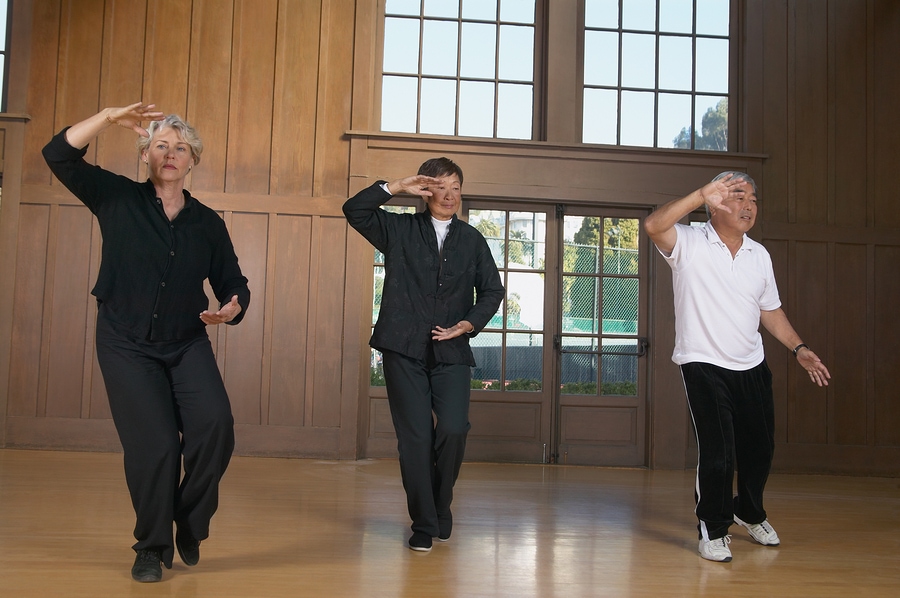Tai Chi based fitness classes lead to less falls among elderly patients

It’s a well-known fact that Tai Chi can help to improve balance and mobility, and is a way of increasing muscle strength in the legs, so it was the ideal therapy for one health authority to introduce to elderly patients in a bid to reduce the number of falls they experienced. According the a 2012 Cochrane review, Tai chi has been shown to reduce the risk of falls in older adults by as much as 29 per cent.
Forty-three GP practices based in in London, Nottingham and Derby took part in the research which looked at introducing activity, including tai chi, to older patients’ routine. A total of 1256 people aged 65 or over were recruited by their GP surgeries to take part, and one year later, the patients still taking part in the study were exercising for an extra 15 minutes per day on average compared to a control group.
The participants also reported a 26 per cent reduction in the number of falls they experienced, a year after they started the fitness programme.
People who took part in the initiative went along to specially designed group fitness classes at community centres, where they were given an hour-long session that included elements of tai chi, leg muscle strengthening exercises and balance and flexibility training. They were also expected to carry out home fitness – just two 30-minute sessions in the home plus two moderate-paced walks every week. The study lasted for a period of 24 weeks.
The fitness and Tai chi intervention had an impressive effect on the participants; after a year, results showed that almost half of them (49 per cent) had carried on with the recommended 150 minutes of moderate to vigorous physical activity per week, which was an increase on the from the 40 per cent who said they already did this amount of exercise at the start of the trial.
The study, also known as Falls Management Exercise (FaME) is one of only two evidence-based programs designed specifically to increase physical activity among over-65s. The other study, a home based study called the Otago Exercise Programme, did not have the same benefits.
The ProAct65+ trial was specifically designed to give over 65’s a better alternative to the ‘exercise on prescription’ approach, which is offered by 89 per cent of Primary Care Trusts. The usual exercise prescription refers patients to local leisure centres, which many elderly people can find intimidating. The ProAct65+approach was thought to be more patient-friendly.

